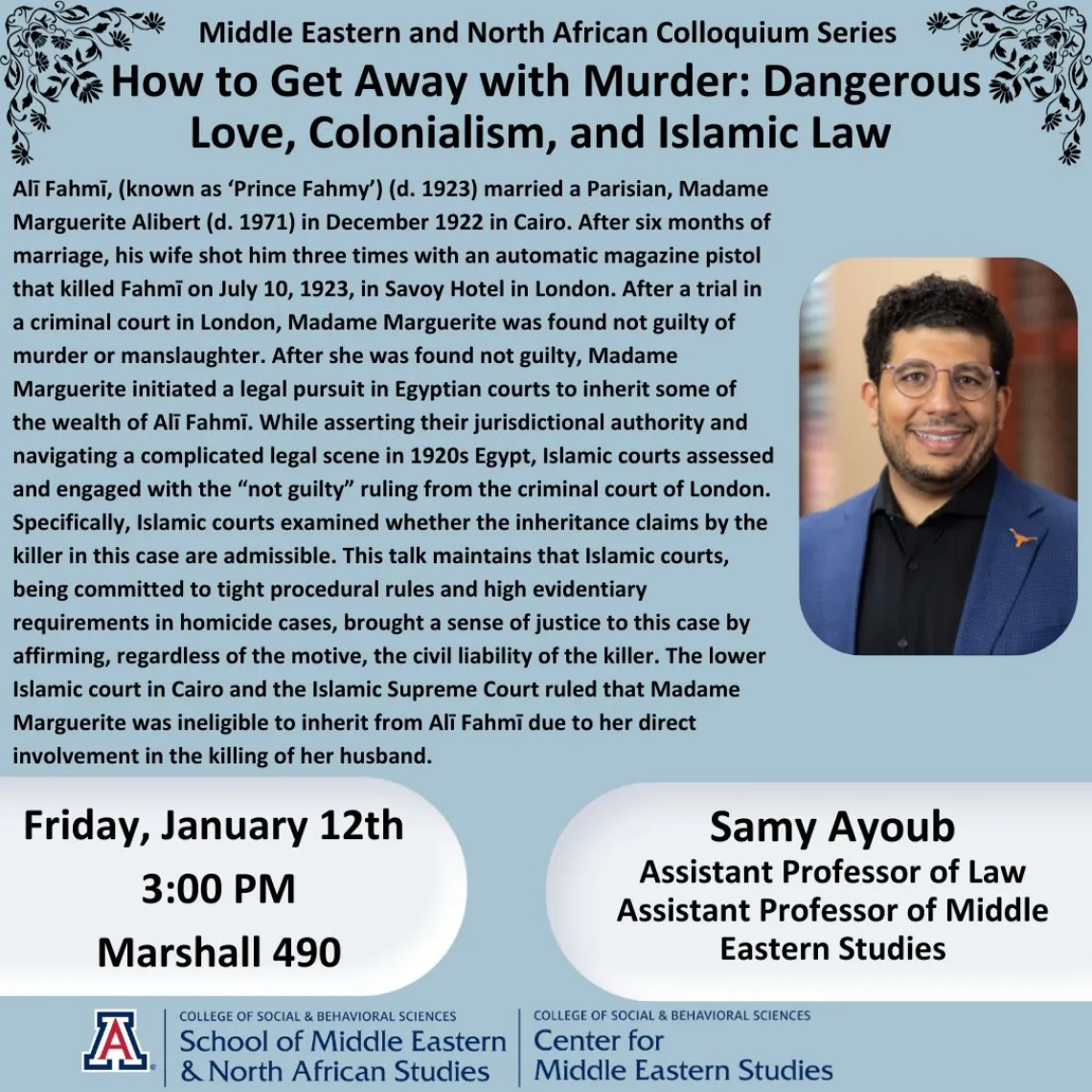
When
Where
Samy Ayoub
Assistant Professor of Law
Assistant Professor of Middle Eastern Studies
How to Get Away with Murder: Dangerous Love, Colonialism, and Islamic Law
Alī Fahmī, (known as ‘Prince Fahmy’) (d. 1923) married a Parisian, Madame Marguerite Alibert (d. 1971) in December 1922 in Cairo. After six months of marriage, his wife shot him three times with an automatic magazine pistol that killed Fahmī on July 10, 1923, in Savoy Hotel in London. After a trial in a criminal court in London, Madame Marguerite was found not guilty of murder or manslaughter. After she was found not guilty, Madame Marguerite initiated a legal pursuit in Egyptian courts to inherit some of the wealth of Alī Fahmī. While asserting their jurisdictional authority and navigating a complicated legal scene in 1920s Egypt, Islamic courts assessed and engaged with the “not guilty” ruling from the criminal court of London. Specifically, Islamic courts examined whether the inheritance claims by the killer in this case are admissible. This talk maintains that Islamic courts, being committed to tight procedural rules and high evidentiary requirements in homicide cases, brought a sense of justice to this case by affirming, regardless of the motive, the civil liability of the killer. The lower Islamic court in Cairo and the Islamic Supreme Court ruled that Madame Marguerite was ineligible to inherit from Alī Fahmī due to her direct involvement in the killing of her husband.

